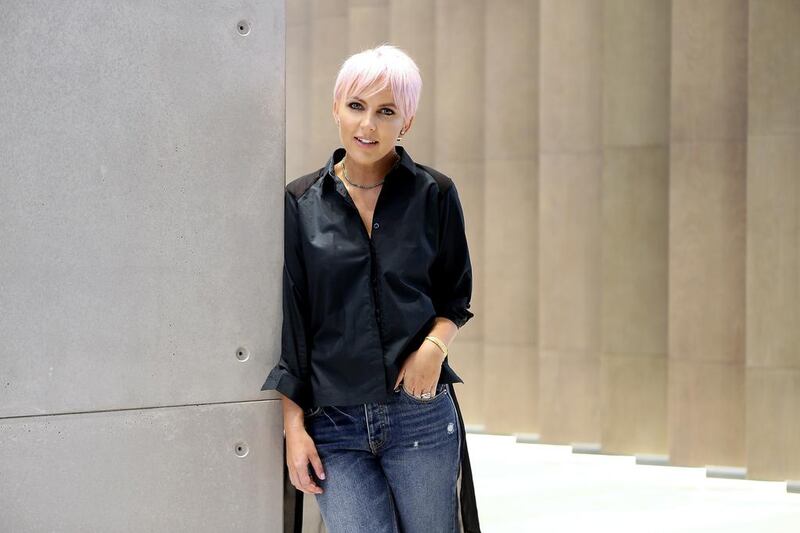Kelly Lundberg, the chief executive and founder of the Dubai fashion styling company Style Me Divine is confident when she says, “I can get someone live in 12 weeks, trained and ready to start styling – everything it’s taken me 11 years to do.” She is now franchising her business internationally.
Ms Lundberg, a former air hostess, set up Style Me Divine in 2005. She paid to franchise her business using a consultancy, which promised help with strategy, financing, manuals and marketing the business to potential franchisees, but had a “terrible experience with them”, which ended up in the small claims court; the company has since gone out of business. Ms Lundberg then decided to go it alone, becoming one of a crop of UAE business owners now franchising their work in the country and abroad.
“It’s not a bricks-and-mortar shopfront, like a spa or hair salon, so it wasn’t worth the investment,” she says. “I decided to go down the route of a membership programme.
“People have been asking me how to become a stylist since I started the business; it’s hard to stand out in a crowded market. And stylists find it hard to go from a hobby, styling friends for free, to a working business that clients pay for. This is a business in a shopping bag.”
Her Super Stylist programme costs US$4,495, plus a regular monthly fee of $150, for at least a year, which covers a three-day training workshop in Dubai, London or Los Angeles, monthly mentoring, a presence on the Divine website and Style Me Divine branded business cards and business templates, as well as support with press releases and social media.
Ms Lundberg went to the United States for a month last year to research franchise models, looking at examples such as Drybar and Blushington salons. “Salons and personal training are well developed in franchising,” she says. “Styling hasn’t reached that level. This is the first platform for stylists to be part of a larger family.”
The most well-known examples of franchising are Subway and McDonald's – it can cost $263,000 to open a Subway, or as much as $2.3 million to join the 30,000-store McDonald's family, according to Entrepreneur magazine.
Jumana Al Darwish is a co-founder of The Happy Box, which sells activity boxes for children aged three to 11. A single box costs Dh250 or an annual subscription for Dh2,400. For every one bought, another is donated to a child in need. She set up the company in 2014 with her sister-in-law and they run it from Dubai and the US.
They were getting franchisee requests within three months from as far away as Brazil, she says, and opened a Bahrain franchisee office in April. They are now spreading out to Qatar, Oman and Saudi Arabia and hope to expand to Europe and North America in the next couple of years. “We met with several consultants and legal counsellors to develop our model,” says Ms Al Darwish. “In truth, there is no clear-cut franchising model – each business is quite specific. Our model is a combination of franchising and agent distribution.”
Ms Al Darwish emphasised that franchising is not easy.
“You need to be able to adapt your model as it rolls out – expansion should be done in phases,” she says. “It’s exciting but has to be done with care – because you could potentially hurt your brand if you open up in risk territories.”
The British Franchising Association estimates that the average initial franchise fee in the United Kingdom is about £14,600 (Dh70,000), but there are also regular fees – often up to 10 per cent of total sales – to pay. The franchiser may also levy resale or renewal fees.
In a survey the BFA ran with NatWest bank last year, it found that 97 per cent of the country’s 44,000 franchised businesses were profitable, with half claiming an annual turnover of more than £250,000.
Imad Charaf Eddine is the chairman of Francorp Middle East, which has worked with Jones The Grocer, Kcal, Marina Furniture, N. Bar and Operation Falafel in its 11 years in the region. The franchising consultant first set up shop in the US in 1976 and has 14,000 clients worldwide.
“Franchising is one of the most intricate growth models because of its strong dependence on the franchisers’ ability to operate and manage individuals and systems effectively,” he says. “The worst thing about the market is fly-by-night consultants who ruin the industry by misleading businesses with the promise of easy money.”
He says franchise development costs – which cover feasibility studies, financial planning, legal documentation and operations manuals, franchise sales and management training and marketing planning – can run from $50,000 to $100,000, and a “fully fledged” programme can take six to nine months.
“Most importantly, we sign a brokerage deal with clients to recruit potential franchisees and support them in their franchise sales process,” he says.
He warns anyone looking to franchise to choose their franchisees carefully to match their company profile, and to have “proper legal documentation” drawn up. “Excellent organisational skills go a long way in building a successful chain,” he advises.
business@thenational.ae
Follow The National's Business section on Twitter





